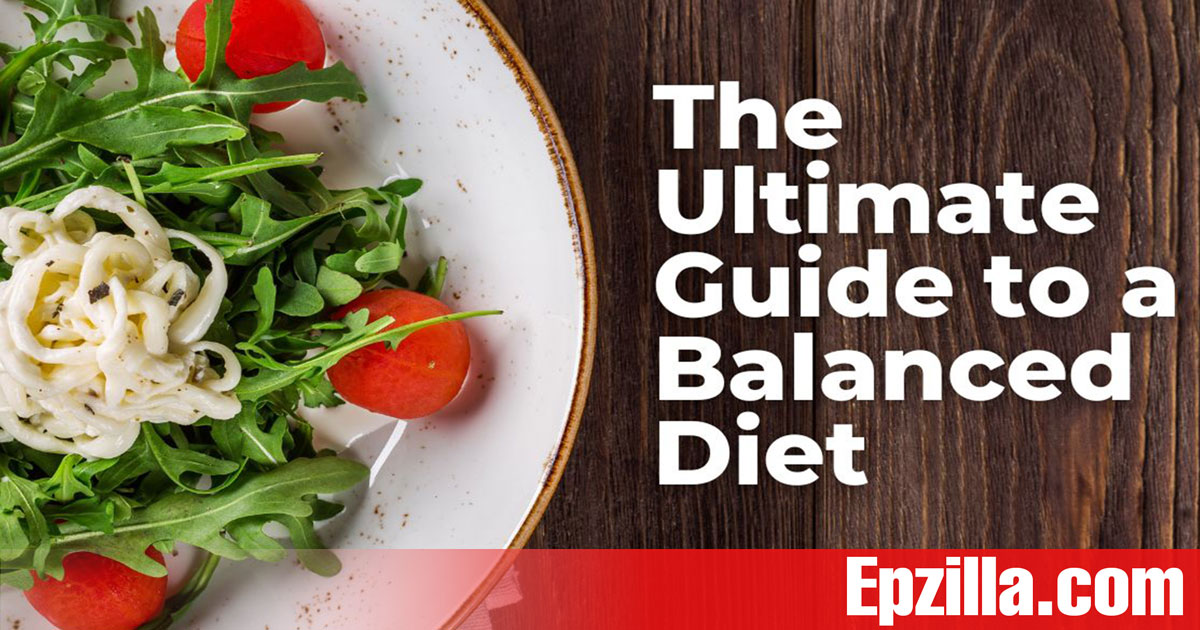Table of Contents
Introduction
In today’s fast-paced world, maintaining a balanced diet can seem daunting. However, understanding what a balanced diet entails and how to incorporate it into your daily routine is crucial for your overall health and well-being. This comprehensive guide will delve into the essentials of a balanced diet, its myriad benefits, and practical tips to help you achieve and sustain it.
What is a Balanced Diet?
A balanced diet provides your body with the essential nutrients it needs to function optimally. It includes a variety of foods in the right proportions from different food groups: carbohydrates, proteins, fats, vitamins, minerals, and water. Each of these nutrients plays a critical role in maintaining bodily functions and overall health.
- Carbohydrates: The primary source of energy. Include whole grains, fruits, and vegetables.
- Proteins: Essential for growth, repair, and maintenance of body tissues. Sources include meat, dairy, beans, and nuts.
- Fats: Necessary for energy, cell function, and organ protection. Focus on healthy fats from avocados, nuts, seeds, and olive oil.
- Vitamins and Minerals: Crucial for various bodily functions. Ensure a variety of fruits and vegetables to cover the spectrum of vitamins and minerals.
- Water: Vital for every cell function in the body. Aim for at least 8 glasses a day.
Benefits of a Balanced Diet
Adopting a balanced diet offers numerous benefits that enhance both immediate and long-term health:
- Enhanced Energy Levels: A balanced diet ensures a steady supply of energy throughout the day, preventing fatigue and boosting productivity.
- Improved Mental Health: Nutrient-rich foods can improve mood and cognitive function, reducing the risk of depression and anxiety.
- Stronger Immune System: Proper nutrition strengthens the immune system, helping the body fight off infections and diseases.
- Weight Management: Balanced diets help maintain a healthy weight by preventing overeating and providing the necessary nutrients for bodily functions.
- Reduced Risk of Chronic Diseases: A diet rich in fruits, vegetables, whole grains, and lean proteins reduces the risk of heart disease, diabetes, and certain cancers.
Daily Caloric Intake and Macronutrients
Understanding your daily caloric needs is crucial for maintaining a balanced diet. These needs vary based on age, gender, weight, height, and physical activity level. Use online calculators or consult a nutritionist to determine your specific requirements.
- Carbohydrates: 45-65% of daily calories
- Proteins: 10-35% of daily calories
- Fats: 20-35% of daily calories
Creating a Balanced Diet Plan
Creating a personalized diet plan can help you stay on track:
- Assess Your Current Diet: Keep a food diary for a week to identify areas for improvement.
- Set Realistic Goals: Start with small, achievable changes.
- Plan Your Meals: Include a variety of foods from all food groups.
- Portion Control: Be mindful of portion sizes to avoid overeating.
- Stay Hydrated: Drink plenty of water throughout the day.
Sample Balanced Meal Plan
Breakfast:
- Whole grain toast with avocado
- A serving of Greek yogurt with berries
Lunch:
- Grilled chicken salad with mixed greens, tomatoes, cucumbers, and a light vinaigrette
- A piece of whole fruit
Dinner:
- Baked salmon with quinoa and steamed broccoli
- A small side salad with olive oil and lemon dressing
Snacks:
- A handful of nuts
- Carrot sticks with hummus
Tips for Maintaining a Balanced Diet
Maintaining a balanced diet can be challenging, but these tips can help:
- Meal Prepping: Prepare meals in advance to avoid unhealthy choices.
- Smart Grocery Shopping: Make a shopping list and stick to it. Avoid shopping when hungry.
- Healthy Snacking: Keep healthy snacks on hand to avoid reaching for junk food.
- Mindful Eating: Pay attention to your hunger and fullness cues to prevent overeating.
- Variety is Key: Ensure your diet includes a variety of foods to cover all nutrient bases.
Common Myths about Balanced Diets
There are many myths surrounding balanced diets. Here are a few debunked:
- Myth: Carbs are bad for you. Fact: Carbohydrates are essential for energy. Choose complex carbs over simple ones.
- Myth: Fats should be completely avoided. Fact: Healthy fats are crucial for bodily functions. Avoid trans fats and opt for unsaturated fats.
- Myth: You need supplements for a balanced diet. Fact: Most people can get all the nutrients they need from a well-rounded diet.
Conclusion
A balanced diet is the cornerstone of a healthy lifestyle. It provides the necessary nutrients your body needs to function effectively and can help prevent various health issues. By following the tips and guidelines outlined in this guide, you can start your journey towards a healthier, more balanced diet. Remember, small changes can make a big difference, so start today and enjoy the benefits of a balanced diet for years to come.











Hi, this is a comment.
To get started with moderating, editing, and deleting comments, please visit the Comments screen in the dashboard.
Commenter avatars come from Gravatar.